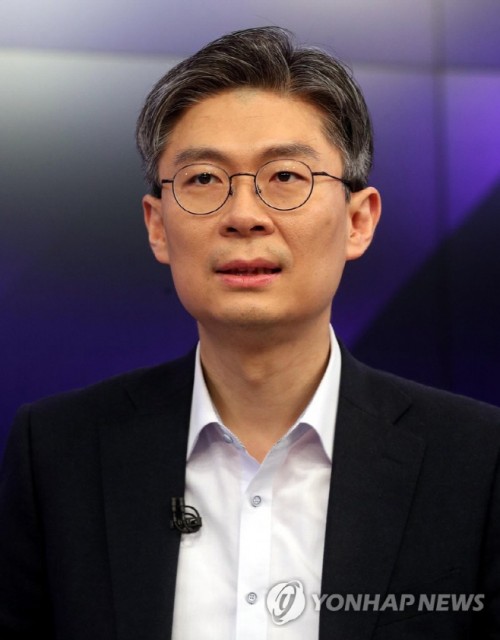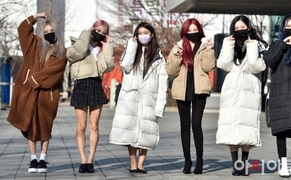 |
| Cho Jung-hoon, the minor liberal Transition Korea party leader, attends a debate with Park Young-sun, the candidate of the Democratic Party, on unifying Seoul mayor candidates held at MBN in Seoul on March 4, 2021./ Source: Yonhap |
AsiaToday reporter Kim Na-ri
“As post-586 generation, I used to consider them as idols who achieved democratization, but now I think those idols are turning into monsters,” said Cho Jung-hoon, the minor liberal Transition Korea party leader, on Thursday, criticizing the ruling Democratic Party’s push to strip the prosecution of its right to investigate. The 586 generation is the generation of Koreans born in the 1960s who attended colleges or universities in the 1980s and were very active politically in the 1980s and 1990s.
“There is no politics but only a hammer to destroy,” he said in a radio interview with YTN. “I don’t know why they keep shaking the principles of democracy.”
“The 586 activists had a bloody fight against dictatorship. But in a way, they are the generation who have not lived in a democratic system. They worked hard for anti-dictatorship, but this is somehow dictatorship of democracy and legislation,” Cho said.
“Who would object to the need for a system to prevent inappropriate investigation of prosecutors and the need to prevent the prosecution from abusing enormous power to lead investigations and indict suspects? It is a pity that no matter how good the intention, it is another example that things can be ruined if the means and pace are not right,” he said.
Regarding the fact that the Democratic Party used the pretext that President-elect Yoon Suk-yeol could exercise his veto after taking office, he said, “In democracy, it is very dangerous to think that things can never work without you.” He said that the ruling Democratic Party should keep in mind that things can change. “Let’s take some time. I believe that we should trust the people and take steps slowly in order to reform the prosecution completely and strongly.”
Regarding Rep. Min Hyung-bae leaving the Democratic Party, Cho said, “I am frustrated with temporary, strategic, or deliberate departure from the party.” He also criticized the Democratic Party’s attempt to neutralize the guarantees for the minorities.
The DP’s plan to neutralize the People Power Party’s filibuster on stripping the prosecution of its investigative authority by filling 180 seats was put to a halt as Cho, who had a casting boat in blocking the filibuster, opposed the bill’s approval. In order to forcibly terminate a filibuster, the consent of at least 180 seats is required. The ruling DP, who has 171 seats, seemed to complete the 180 seats by securing 6 seats from independent lawmakers, 2 from Transition Korea party and Basic Income party, and one from Rep. Kwon Eun-hee of the People Power Party. However, Cho abruptly left, expressing his opposition.
“My smartphone is filled with text messages asking to stop the filibuster,” he said. “Looking at the situation that the DP’s decision is affected by a decision of a lawmaker of a single-member party, it has proved that the two main axes of democracy should be balanced that the majority decides but the minority decides the opinion.”
#Transition Korea #democracy #prosecution reform #Cho Jung-hoon
Copyright by Asiatoday
Most Read
-
1
-
2
-
3
-
4
-
5
-
6
-
7





















